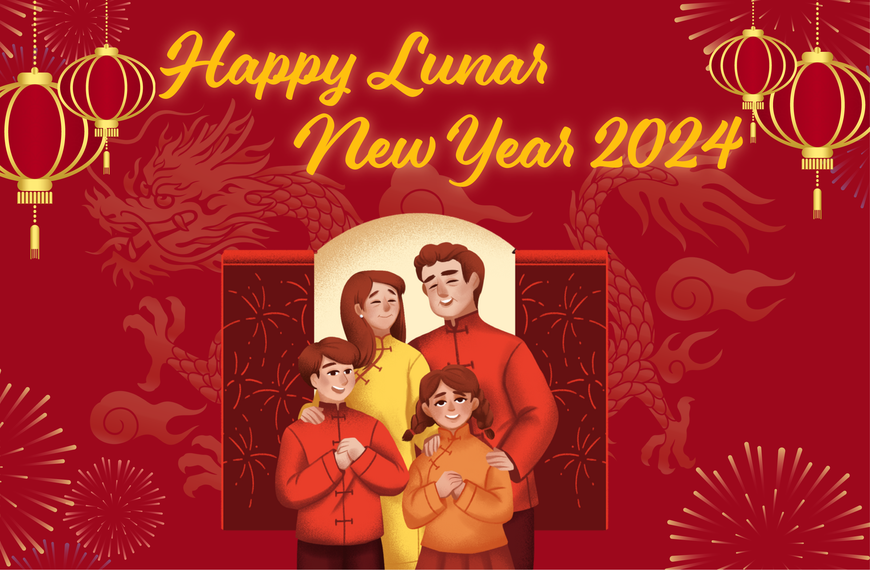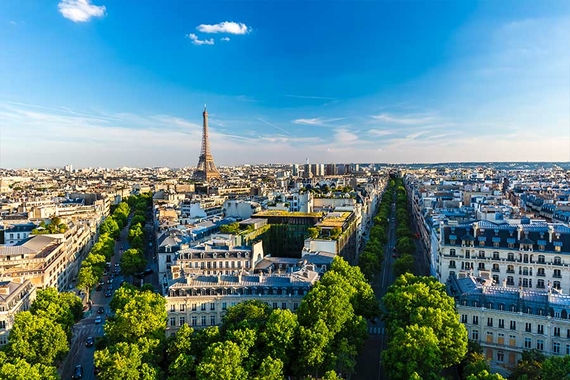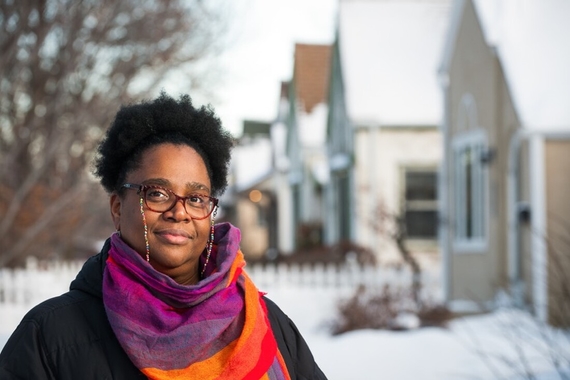Lunar New Year Traditions Unveiled
The Lunar New Year, also known as Chinese New Year or Spring Festival, is considered one of the most popular holidays in China and Chinese communities worldwide. Celebrated over the course of fifteen days, the festivities include reunions, feasts, and hope for good fortune in the new year.
“One of the main goals is to put people in a celebratory mood,” shares Senior Lecturer Jin Stone (Asian & Middle Eastern Studies). Stone grew up in northern China and studied English literature before moving to the United States in the late '90s. He joined the University of Minnesota to pursue his PhD and has been an instructor in Chinese language courses since 2003.
Though Stone acknowledges that Lunar New Year celebrations have evolved, the themes of family and togetherness have remained constant. Here, he shares some more fun facts about the official arrival of spring.
The Lunar New Year celebration is fifteen days long.
Lunar New Year represents the start of the new year and the start of spring, just like the significance of January 1 in the United States. Similarly, the Lunar New Year represents the first day of the first month of the lunar calendar, and because lunar calendars are roughly about one month behind the solar calendar, it’s celebrated about a month after January 1.
The holiday season is actually 15 days long. Spring Festival, which begins on February 10 this year, is the first day of the holiday season, and the fifteenth day is called the Lantern Festival, which marks the end of the celebration.
Festivities include friends, family, and fireworks.
One of the main goals is to put people in a celebratory mood; to celebrate life, victories, and achievements. It’s also a time to (temporarily!) ignore troubles and any challenges in your life and honor a grand holiday.
Traditionally, you spend one to two days with your entire family which is especially important given how busy people could be the rest of the year, and you also make a point to visit all of your friends by stopping at their houses and offering new year’s greetings, which is intended to strengthen and renew your connections.
When I was young in China, there were some hardships and poverty, and Spring New Year was a special occasion where we’d splurge. The thing I was always excited about was the seeming abundance of good foods; that’s what I remember the most. For those few days, people seemed to be less stressed about spending and we’d get candy, nuts, and other food-related gifts. Generally speaking, people would also purchase new clothes for that special holiday, and that was always something we’d look forward to, too.
Some families would give red envelopes of cash, but that wasn’t happening in my part of China. Maybe in Hong Kong or Taiwan, but in some parts of mainland China, it was tough to have cash to spare.
There are also a lot of firecrackers. Some people believe you light them to scare away evil spirits or any other elements of life that you don’t want to have in the new year. It is almost a national effort; everywhere you go, there are firecrackers. The first hour of the spring’s new day, every household sets off firecrackers, and whole cities are covered in smoke and noise. That’s very uniquely related to the new year celebration.
Eat your fish, but don’t eat it all!
Dumplings are a must-have. Why? There are so many interpretations and it really depends on what kind of traditions you take part in, but some people believe that when you make dumplings, which are sealed, you’re sealing up the mouths of your enemies or critics. They can’t create misinformation about you in the new year. I am not sure if that’s universally accepted in China, but it’s something that some Chinese believe.
Fish is another must-have, prepared in many different ways. The pronunciation of the Chinese word for fish sounds the same as the pronunciation of the word for surplus. So the idea is, as long as you have a fish dish, your family will have more than what they need in the new year. But you’re not allowed to finish it! You must leave some of it uneaten. If you finish the fish, it’s seen as taking away a potential surplus. You’ll be the object of blame with your family teasing, “You’ll make us less rich the next year!”
An upside-down sign means good luck will arrive.
Another common Lunar New Year tradition is writing Chinese characters on a strip of red paper. You do this twice, another set of characters that match the first meaning-wise, then tape them on both sides of your door frame. Traditionally Chinese people associate the color red with good luck, red is an auspicious color. So for weddings, the brides often wear something in red, while white is a color associated with death, so traditionally people would never wear white-colored clothing for weddings.
Back to the new year, Chinese people often write “good luck” on red paper and tape it upside down in their homes. The characters for “upside down” are pronounced “dao le,” which are the same sound as the Chinese expression for “has arrived.” So this symbolizes good luck has arrived in your household for the new year.
The Chinese zodiac was once used to determine age.
Today’s common way of counting years, “this is the year 2024,” was not commonly used in traditional China. Instead, institutions and governments would say, “You graduated in the third year of this administration” or “You were born during the fifteenth year of this emperor.”
The Chinese zodiac was important because it allowed people to determine the age of a person or the time of an event. In the olden days, you could tell people the animal associated with the year you were born, and from there, people could figure out your age. The zodiac has twelve animals which can all be correlated to birth years and they’re arranged in a specific order: Rat, Ox, Tiger, Rabbit, Dragon, Snake, Horse, Goat, Monkey, Rooster, Dog, and Pig.
Of course, there are a lot of fun and personal interpretations. If it’s the year of the chicken, people may opt not to eat chicken. Or if it’s the year of the tiger, you might set out to be brave and courageous.
Read more about why the Year of the Dragon could be a lucky one.
The Lunar New Year festivities vary, and so do the perspectives on how it’s celebrated.
Historically, a number of countries in East Asia might have observed Lunar New Year, but because of the political efforts in recent history, some of those countries are trying to reduce the impact of Chinese culture and tradition on their own cultures; they’ve tried to minimize their traditional practices that were closely tied to Chinese practices.
However, it’s important to acknowledge that everyone’s perspective, including mine, is just one aspect. My perceptions of China have been complicated by my personal experience of living and working in the US. I used to think I was an expert on all things Chinese, as a member of the Han Chinese people, it’s easy to assume the Han People’s way of doing things is the only way of doing things, but I don’t think that way anymore. Whatever is presented here is true to a certain degree, but shouldn’t be accepted as universally true throughout China.



